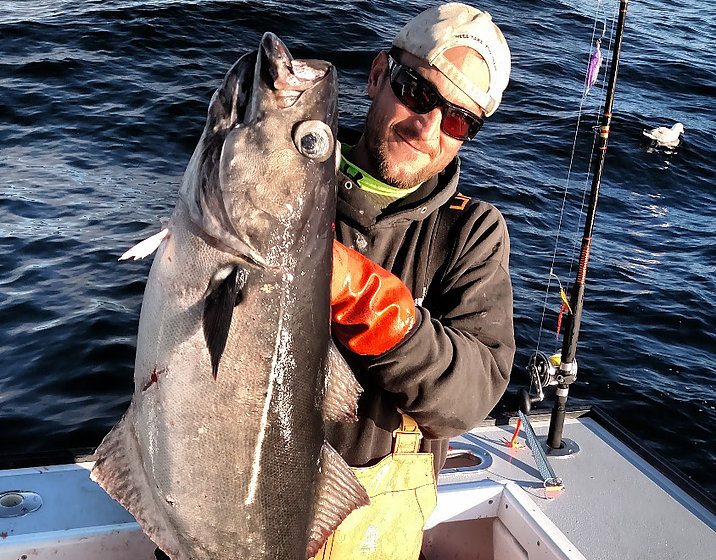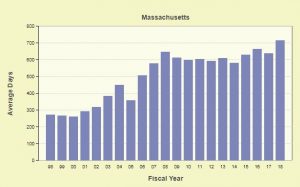Episode 120: How Fishing Regulations Hurt Fishermen; The Life And Death Of A Football Star

This week on NEXT: we discuss the experience of immigrating to our region. First, we speak with a man who fled violence in his home country of Nicaragua. Then we explore the growing backlog at the immigration court in Boston. We also learn about the life and death of former Patriots tight end Aaron Hernandez, and how his brain is helping scientists discover the long-term effects of head injuries. Plus, we learn about the measures that regulate the fishing industry, and how this makes it difficult for small-scale fishermen to make a living. It’s NEXT.
Nicaraguan Man Living in Vermont Wants to Return Home
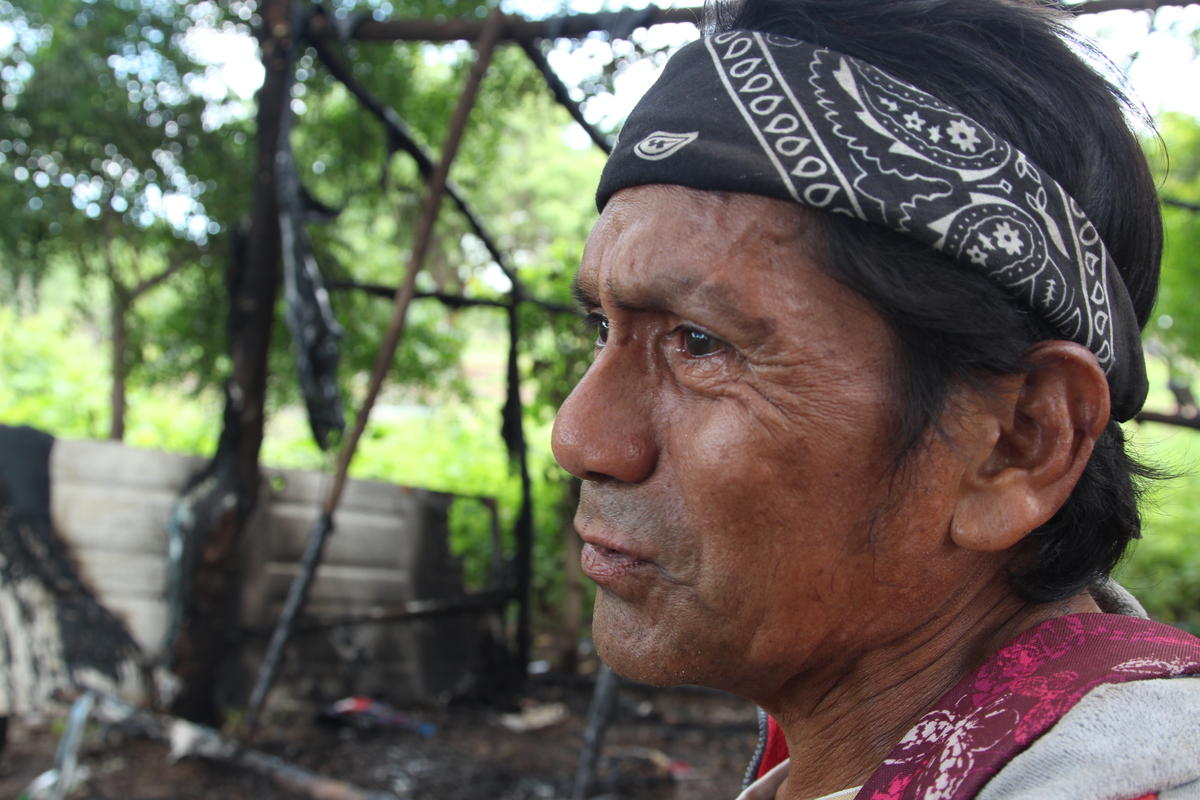
Rafael Morales stands in front of his home hours after he and neighbors allege Nicaraguan police burned it down. The motive for the attack is unclear as Morales said he is a Sandinista government supporter. Photo by Lorne Matalon for VPR
A humanitarian crisis is unfolding in the Central American nation of Nicaragua, forcing thousands to seek asylum in neighboring Costa Rica. About a quarter million Nicaraguans live in the US, the vast majority in California and Florida. New England is home to only a few thousand Nicaraguans, including a handful in the state of Vermont.
Lorne Matalon found a man who wants to return home but is afraid to. He is currently living legally in Montpelier, weighing his options as chaos appears to be growing in his country.
For more reporting on the situation in Nicaragua, listen to the second part in Lorne’s series, “Repression and Lawlessness Spur Flight from Nicaragua, Those Who Stay Face Political Turmoil.”
Immigration Court Backlog on the Rise in Boston
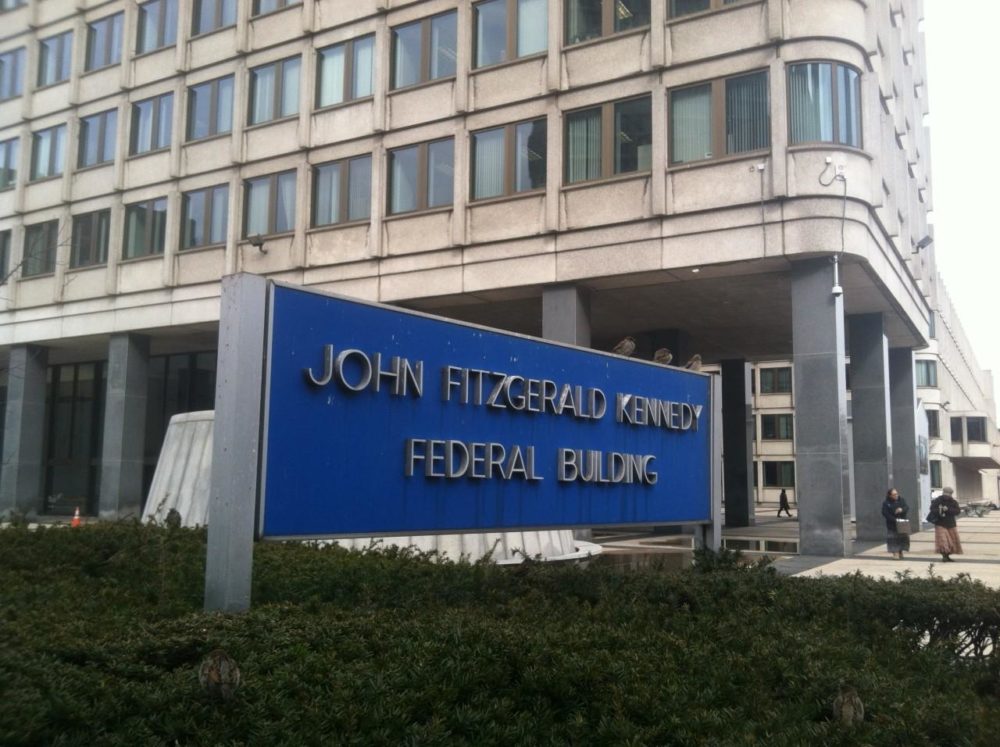
John F. Kennedy Federal Building in Boston houses the Boston Immigration Court. Photo by Curt Nickisch for WBUR
The backlog of cases in immigration courts is steadily increasing nationally, and it has been for years. In the immigration court in Boston, which handles most cases in New England, the backlog is spiking: up 76 percent between October 2016 and this past July. That’s the second largest increase in the country.
WBUR’s Shannon Dooling takes a look at some of the factors behind the jump and who bears the brunt of the long wait times.
Amazon Passes Over Boston for HQ2
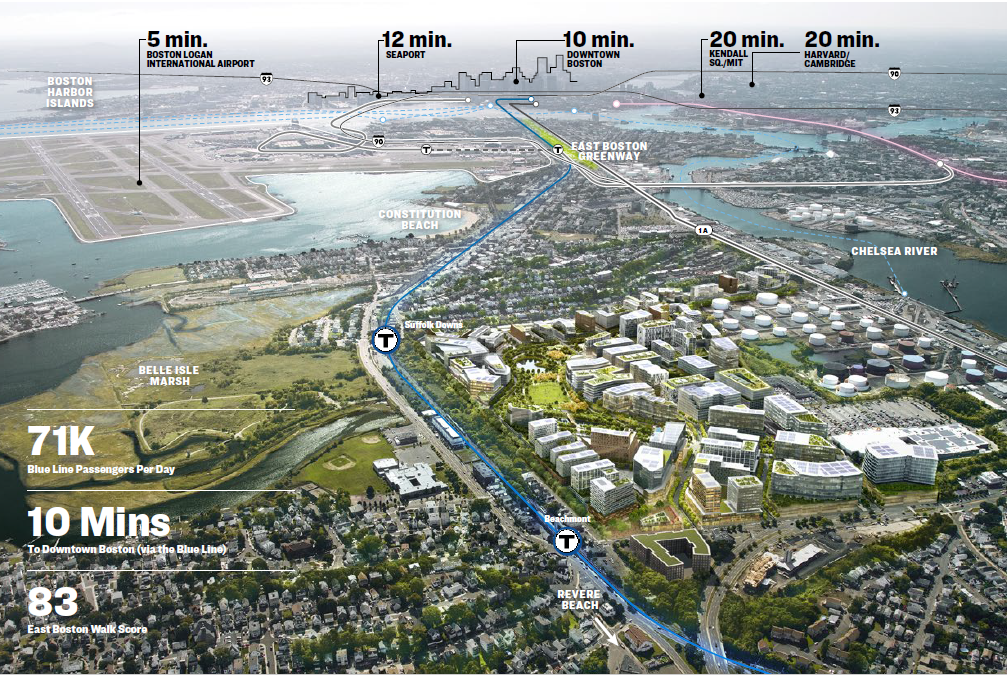
A rendering of a proposal the city of Boston presented to Amazon to create its second headquarters in the city. (Courtesy City of Boston)
When Amazon announced this past week that they were picking two – not one – site for their “HQ2,” you may have thought the booming tech hub of greater Boston would’ve had a shot. But alas, Amazon picked the New York and Washington metro areas to expand. The decision to snub Boston has reopened some old wounds for an area that has a long history of missed opportunities to attract large technology companies.
Robert Noyce got his Ph.D. at MIT but picked California to launch Intel. Bill Gates was a Harvard student when he hatched the idea that became Microsoft. Then he dropped out and started the company in Albuquerque. The list goes on. But as WBUR’s Callum Borchers reports, Boston needn’t feel too sorry for itself.
Borchers also reports that Amazon is still expanding in the city, even though it will not be the site of the company’s second headquarters.
What Aaron Hernandez Can Teach Us About the Football Industry
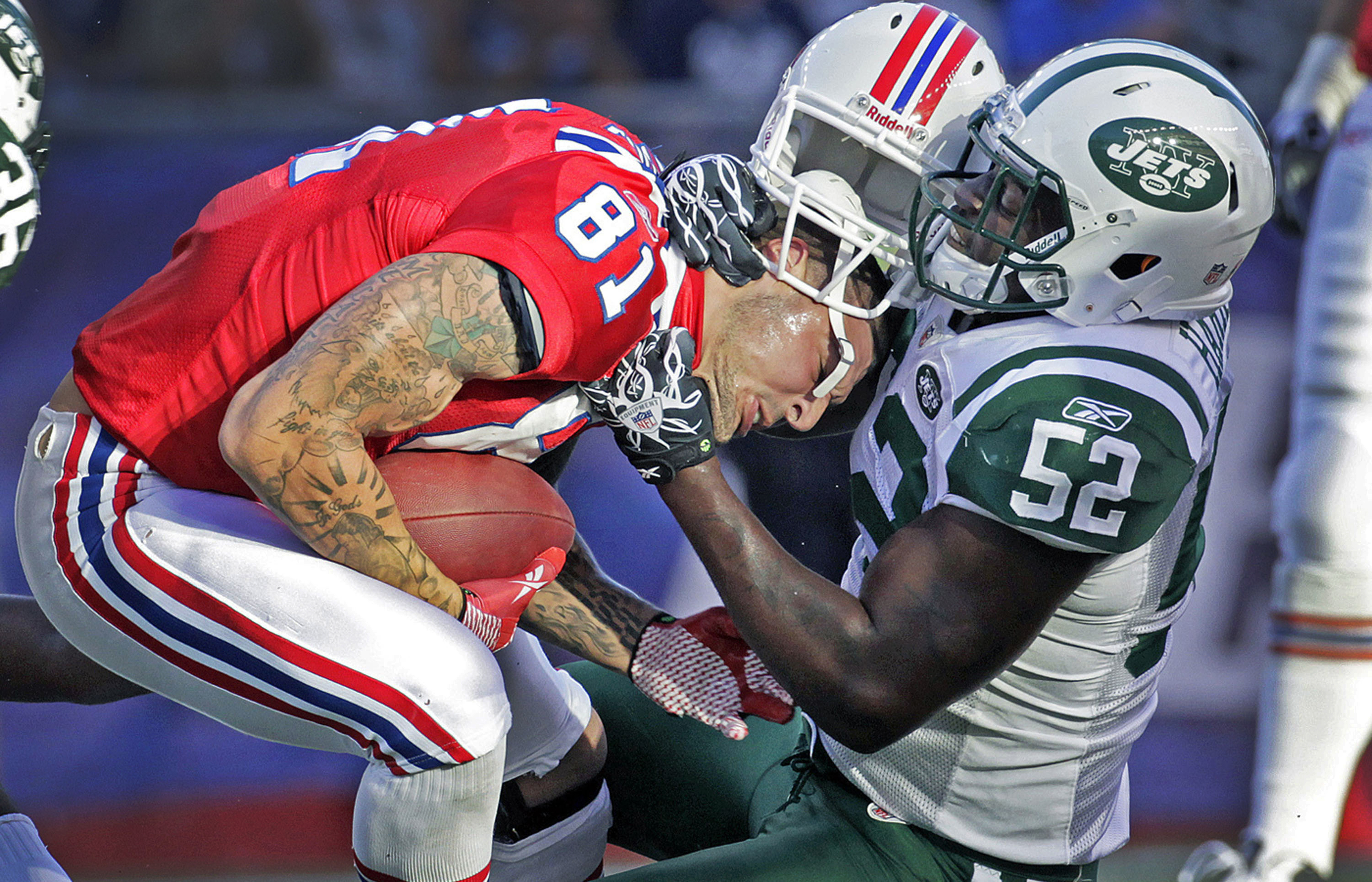
Patriots tight end Aaron Hernandez (left) is taken down by the Jets David Harris after a first quarter catch, and he loses his helmet in the process. Photo by Jim Davis for the Boston Globe. Courtesy of The Boston Globe
The life of Aaron Hernandez could have been a storybook New England tale. He was born and raised in Bristol, Connecticut–not far from the headquarters of sports giant ESPN–and rose to fame as a tight end for the New England Patriots. But after just three seasons in the NFL, he was put on trial for multiple murders and sentenced to life in prison. And at 27 years old, Aaron Hernandez committed suicide at a correctional center in Massachusetts.
A new six-part Spotlight series from the Boston Globe explores his life, death, and legacy in articles and a podcast. The series investigates what his death can teach us about the football industry, and the long-term effects of the sport on players’ brains.
We speak with Bob Hohler, an investigative sports reporter for the Boston Globe and part of the team responsible for the Spotlight Series, ”Gladiator: Aaron Hernandez and Football Inc.”
Exploring How the “Fish Bill” Affects Small Businesses
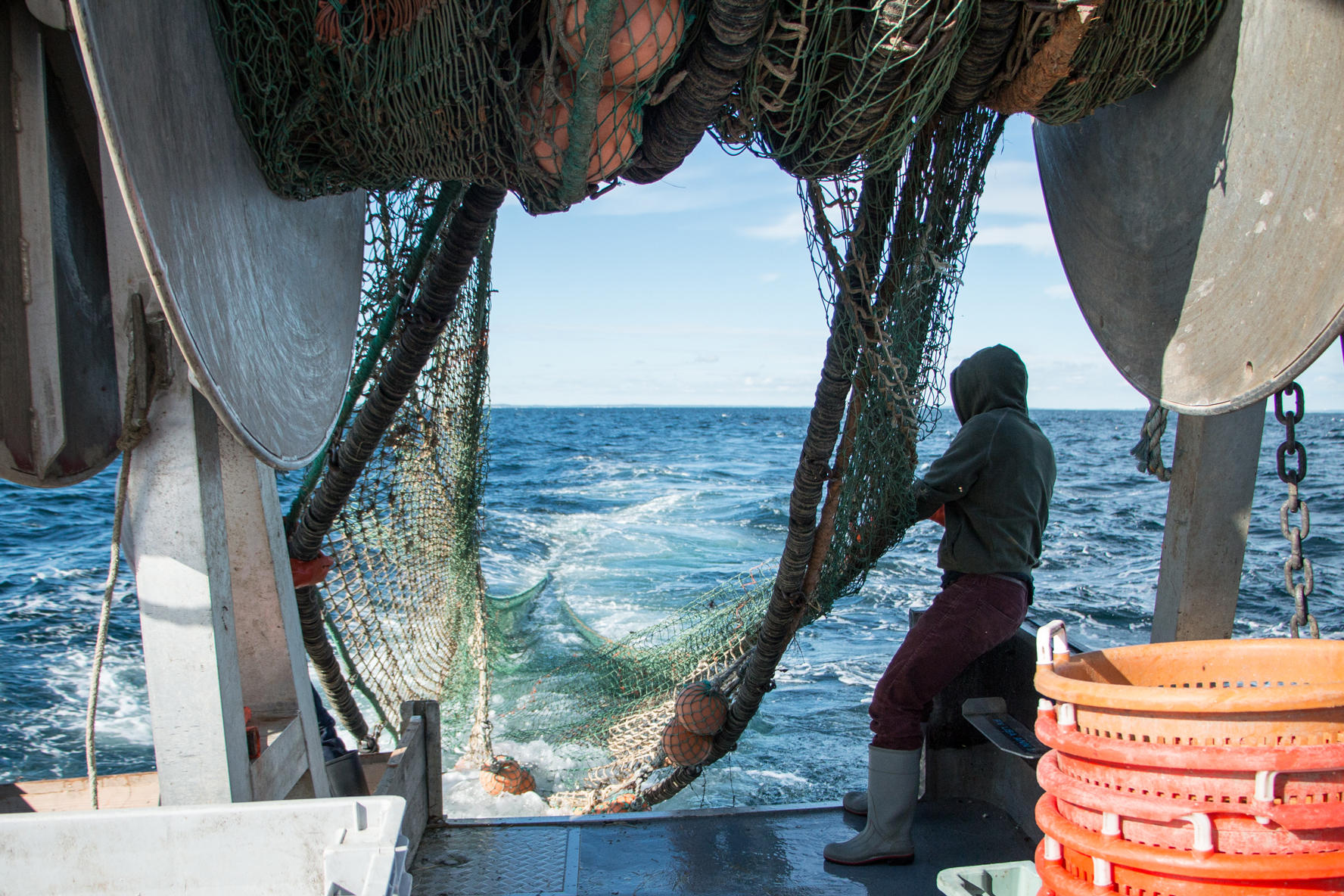
Portland’s Gulf of Maine Research Institute has designed a trawl net that aims to target species that can still be profitable while avoiding cod. Photo courtesy Gulf of Maine Research Institute
The waters around New England once teemed with cod. But the story for the past few decades has been one of overfishing and decline. In 2010, a new set of regulations were put in place that was designed to protect the fish that were left. But these regulations have made it hard for small-scale fishermen to make a living.
Producer Matt Frassica introduces us to one of them in his podcast, “The Briny.” His story explores the unintended consequences of conservation.
Photo at the top of the page: Fisherman Tim Rider. Courtesy of Tim Rider
About NEXT
NEXT is produced at Connecticut Public Radio
Host: John Dankosky
Producer: Lily Tyson
Digital Producer: Carlos Mejia
Senior Director: Catie Talarski
Contributors to this episode: Lorne Matalon, Shannon Dooling, Callum Borchers
Music: Todd Merrell, “New England” by Goodnight Blue Moon, “Stepping Stone” by Duffy, “Make Your Move” by Hieroglyphics, “Levon’s Dream” by Hurray for the Riff Raff
—
New to NEXT? You can find every episode or one you missed within our archives.
We appreciate your feedback! Send critiques, suggestions, questions, and ideas to next@wnpr.org. Follow us on Facebook and Twitter. Help us spread the word! If you like what you hear, rate and review us on iTunes.

